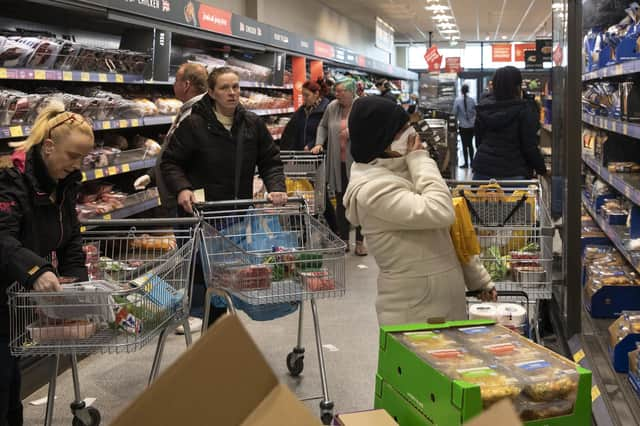Cost-of-living crisis may be just a foretaste of worse to come – Scotsman comment


For the Office for National Statistics survey comes amid reports that large numbers of consumers are significantly reducing their outlays.
According to research carried out for insurance company MetLife, one in six people have already reduced their costs and 57 per cent expect to do so soon, mainly by cutting back on eating out, luxuries, holidays, socialising and entertainment – all industries that provide jobs for large numbers of people.
Advertisement
Hide AdAdvertisement
Hide AdAnd Richard Walker, managing director of Iceland, recently warned that people were buying fewer basics like potatoes because they could not afford the energy to boil them and also that the frozen food supermarket chain was losing some customers to food banks.
The UK is far from the only country seeing such disturbing trends, with a report by US financial strategists Currency Research Associates warning of strong anecdotal evidence that a “global ‘buying strike’ is emerging”. Developing countries, in particular, have been badly hit by rises in the prices of basic goods, they added.
Given energy is a cost in almost everything we produce, it was only a matter of time before soaring prices fed into a much wider economic malaise.
The question now is how are politicians going to respond to this threat, not just to people’s living standards but their livelihoods.
In the UK, the situation is set to become even more serious towards the end of the year with further rises in energy bills expected to kick in just in time for winter.
A windfall tax on fossil fuel companies’ runaway profits has been suggested to help ordinary consumers pay their bills and the justification for that has only been getting stronger. More generally, the need to ensure global corporations pay a fair rate of tax – an issue that requires international cooperation – has also become more pressing.
But whatever strategies are adopted, politicians of all parties should be in no doubt about the extent to which the electorate is hurting and that they need to have an effective and comprehensive plan to ease that pain.
Comments
Want to join the conversation? Please or to comment on this article.
